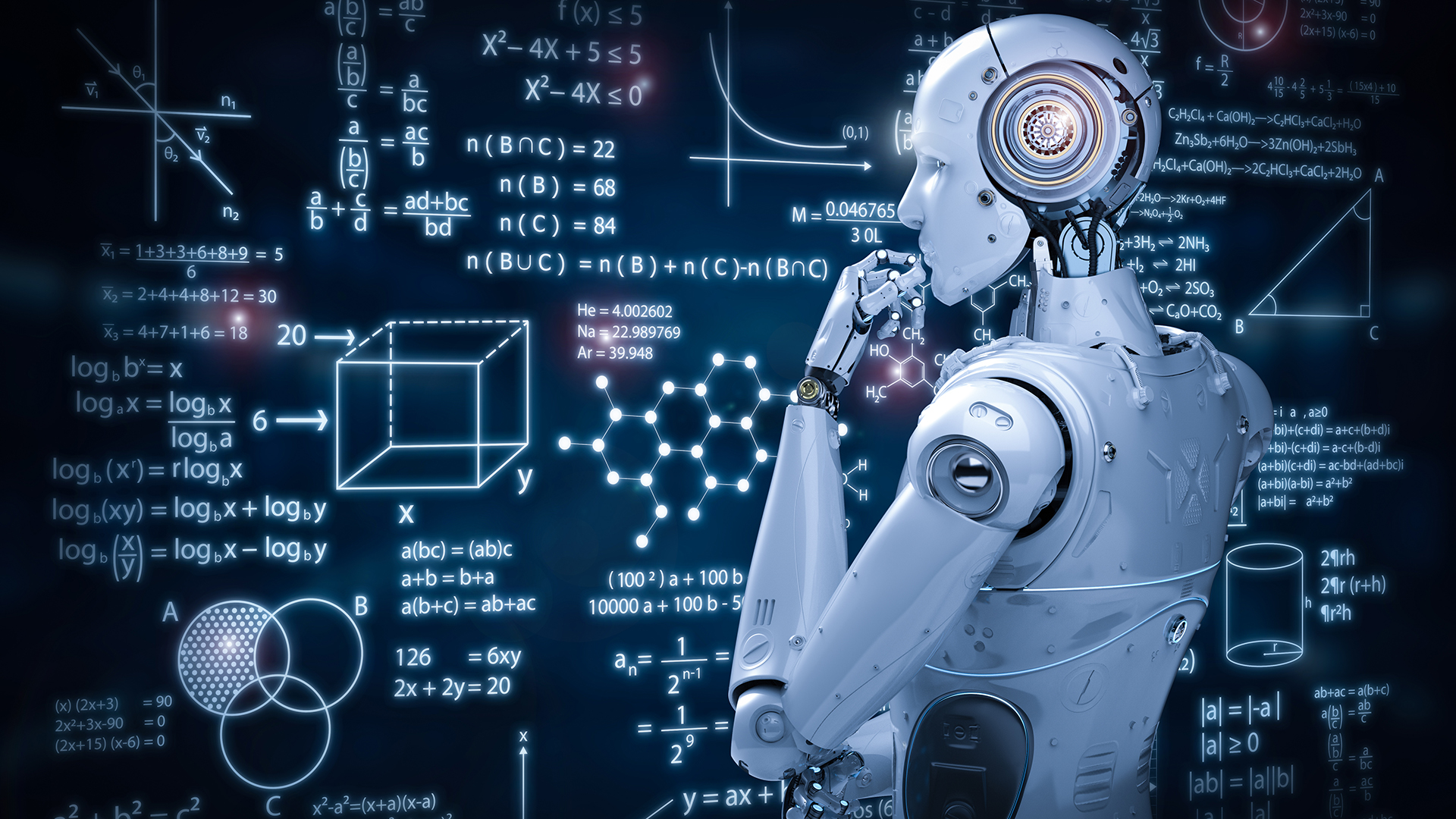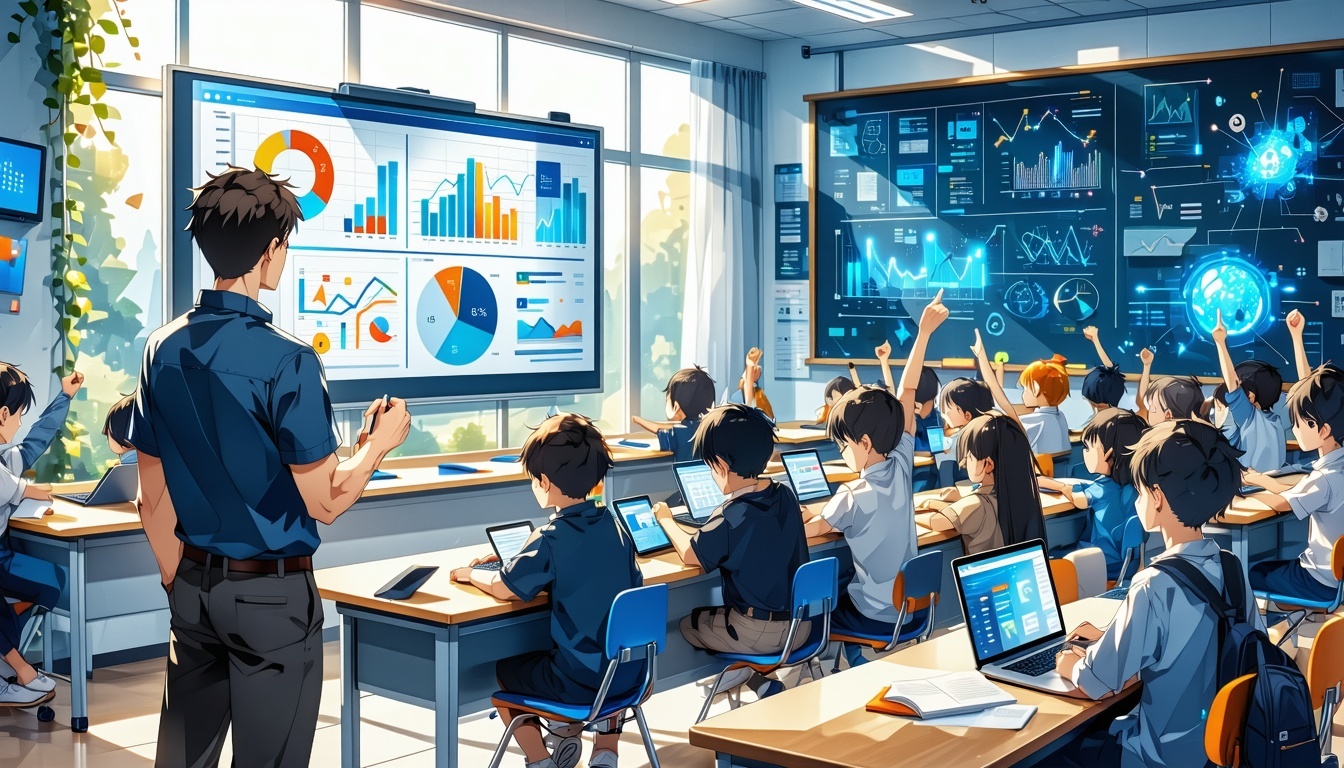How to Use AI to Enhance Personalized Learning in K-12 Education
This article explores the growing impact of AI in K-12 education, focusing on how it enables personalized learning tailored to each student's needs....
You must be logged in to the LATechNet portal to view additional resources.
4 min read
 Aria - LATechNet Team
:
Jun 13, 2025 6:03:18 AM
Aria - LATechNet Team
:
Jun 13, 2025 6:03:18 AM

Artificial Intelligence (AI) is no longer just a futuristic idea from science fiction—it has quickly become part of our everyday lives. From personalized shopping recommendations online to voice assistants like Siri and Alexa, AI is steadily reshaping countless industries, making tasks quicker, easier, and more personalized than ever before.
For educators, this growing influence of AI is especially exciting. Imagine teaching in a classroom where technology helps adapt lessons to each student’s unique learning style or quickly identifies students who might need extra help. Exploring how AI is changing education isn't just fascinating—it’s essential. It opens a window into the potential benefits technology can offer, such as making education more inclusive, accessible, and engaging. Understanding this evolution helps us prepare our students and ourselves for the incredible possibilities that lie ahead.
Adaptive learning is like having a personalized tutor for every student. By using AI, these platforms adjust lessons based on each student's strengths and weaknesses, giving extra help exactly where it's needed. This personalized approach makes learning more effective and engaging. A fantastic example is Knewton, an AI-driven adaptive learning platform. After using Knewton, students saw an impressive 62% boost in their exam scores, clearly showing how powerful personalized learning can be in improving educational outcomes (khrisdigital.com).
AI tutoring systems, like friendly virtual study partners, guide students through difficult concepts step-by-step. These systems offer real-time feedback, explain mistakes, and keep learning engaging. Syntea, an AI-powered tutoring assistant, is a great example. Students at IU International University of Applied Sciences who used Syntea reduced their study time by about 27%, allowing them to learn faster while achieving the same or better results (arxiv.org). AI-powered tutors are truly changing the way students experience learning.
Imagine a world where teachers spend less time buried under paperwork and more time connecting with students. AI is making this possible by automating routine administrative tasks like attendance tracking, grading, and scheduling meetings. According to the World Economic Forum, AI tools can automate up to 20% of educators' clerical tasks, freeing valuable hours that teachers can dedicate to personal engagement and classroom interaction with their students (weforum.org).
Beyond clerical tasks, AI also supports educators in designing more effective and personalized instruction. AI-powered tools help teachers create tailored lesson plans and adapt course materials to better meet individual student needs. Forbes predicts that by 2024, almost 47% of Learning Management Systems will integrate AI, empowering educators to craft more engaging and impactful learning experiences (khrisdigital.com).
Artificial intelligence is making exciting strides in helping students achieve better academic results. In fact, studies have shown that 98% of students using AI-supported learning tools have improved their academic scores significantly (grazitti.com). This impressive statistic highlights how effectively AI can pinpoint exactly where a student might be struggling.
By quickly identifying weaknesses, AI tools can step in with personalized support, giving students real-time feedback and targeted help. Imagine having a friendly tutor always ready to guide you through tricky math problems or difficult grammar points, right when you need it most! This personalized approach allows students to tackle learning challenges confidently and effectively, ultimately boosting their overall performance and making learning a much more enjoyable and rewarding experience.
As AI becomes increasingly common in classrooms, protecting student data has grown more important than ever. AI tools often rely on collecting detailed information about students' learning habits and personal backgrounds. While this data helps customize learning, it also raises concerns about privacy. Schools must ensure robust security measures to protect sensitive student information from misuse or breaches. Educational leaders should clearly communicate how student data is collected, stored, and used. Transparency and trust are key—educators and families need confidence that student information is secure and respected.
Another important ethical challenge is making sure all students benefit equally from AI advancements. Not every student has access to the same technology or reliable internet, which can widen existing gaps in education. Schools and policymakers should actively address this 'digital divide' by providing resources, support, and training to underserved communities. Strategies might include partnering with technology companies, securing grants for equipment, or creating community hubs with internet access. By thoughtfully addressing these challenges, we can help ensure AI-driven education truly benefits everyone, leaving no learner behind.
Imagine a classroom that adapts instantly to each student's learning style, or a virtual tutor who understands exactly when a student feels stuck. This isn't far-off fantasy—it's the exciting direction AI is heading! Emerging trends like personalized learning platforms, immersive virtual realities, and AI-powered emotional intelligence tools promise a more responsive and engaging educational experience. As AI continues to evolve, we can expect it to increasingly understand and adapt to human emotions, making learning more supportive and less stressful.
But innovation isn't a one-time deal; it's an ongoing journey. Continuous improvements and fresh ideas are essential to keep AI educational tools relevant and effective. By staying open to experimentation, educators and developers alike can ensure these tools stay aligned with students' ever-changing needs, ultimately opening up countless new opportunities for meaningful learning experiences.
Every educational institution has unique needs and goals, and LATechNet understands this well. They specialize in crafting customized AI-powered solutions that fit perfectly into specific classroom environments. Whether it's personalized learning platforms that adapt to individual student strengths and weaknesses, intelligent tutoring systems that provide real-time guidance, or adaptive technologies designed to enhance student engagement, LATechNet ensures that educators have powerful tools tailored specifically for their classrooms.
When it comes to student data, privacy and security are top priorities. LATechNet is committed to protecting sensitive student information by offering comprehensive security services and ensuring strict compliance with data privacy regulations. They manage cybersecurity threats proactively, providing secure infrastructure along with ongoing support. This approach helps educators and administrators rest easy knowing their students' information is safeguarded.
Bringing AI into education isn't just about technology—it's about empowering teachers, too. LATechNet supports educators by offering training and professional development programs designed to build confidence and skills in using AI effectively. Their ongoing support helps teachers seamlessly integrate these new technologies into their classrooms, making the transition smooth and rewarding, ultimately enriching the whole educational experience.
Artificial Intelligence is rapidly transforming education, opening doors we never imagined possible. From smart tutoring systems that adjust lessons to match individual learning styles to automated grading that gives teachers more time to focus on students, AI is reshaping classrooms into personalized, engaging spaces. But to make the most of AI’s potential, schools need strong partnerships and strategic planning. Collaborating with trusted networks like LATechNet helps educators navigate the complexities of AI integration, ensuring technology enhances learning experiences rather than complicating them. As we move forward, embracing AI thoughtfully and working together thoughtfully will pave the way for an education system that's not just innovative, but truly inspiring for every student.

This article explores the growing impact of AI in K-12 education, focusing on how it enables personalized learning tailored to each student's needs....

This article explores the transformative impact of AI-driven predictive analytics in K-12 education, highlighting how these tools help identify...

The integration of AI in education is transforming how teaching and learning occur, offering tools like personalized tutoring and automated grading...